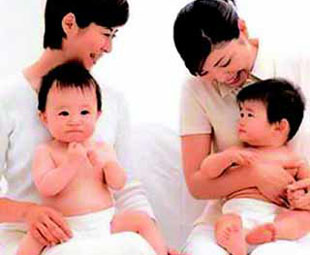| Home / Health / Photo | Tools: Save | Print | E-mail | Most Read |
| Babies Are Better at Listening than We Thought |
| Adjust font size: |
Babies might seem a bit dim in their first six months of life, but researchers are getting smarter about what babies know, and the results are surprising.
Soon after birth, infants are keen and sophisticated observers, capable of seeing details in the world that are visible to some other animals but invisible to adults, older children and even slightly older infants. Recently, scientists have learned the following: At a few days old, infants can pick out their native tongue from a foreign one. At 4 or 5 months, infants can lip read, matching faces on silent videos to "ee" and "ah" sounds. Infants can recognize the consonants and vowels of all languages on Earth, and they can hear the difference between foreign language sounds that elude most adults. Infants in their first six months can tell the difference between two monkey faces that an older person would say are identical, and they can match calls that monkeys make with pictures of their faces. Infants are rhythm experts, capable of differentiating between the beats of their culture and another. The findings, presented in the latest issue of the journal Science, is that infants just 4 months old can tell whether someone is speaking in their native tongue or not without any sound, just by watching a silent movie of their speech. This ability disappears by the age of 8 months, however, unless the child grows up in a bilingual environment and therefore needs to use the skill. In fact, all the skills outlined above decline somewhere around the time infants pass the 6-month mark and learn to ignore information that bears little on their immediate environment. The new study involved showing videos to 36 infants of three bilingual speakers reciting sentences. After being trained to become comfortable with a speaker reciting a sentence in one language, babies ages 4 and 6 months spent more time looking at a speaker reciting a sentence in a different language - demonstrating that they could tell the difference. (China Daily via agencies May 28, 2007) |
| Tools: Save | Print | E-mail | Most Read |
 |
| Related Stories |
|
